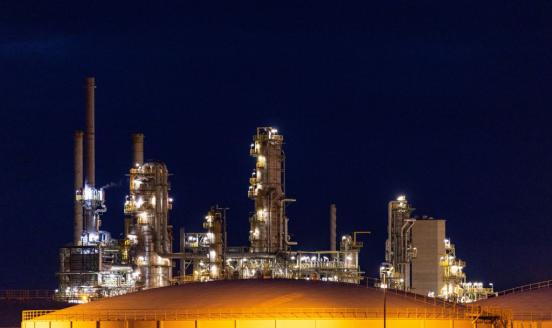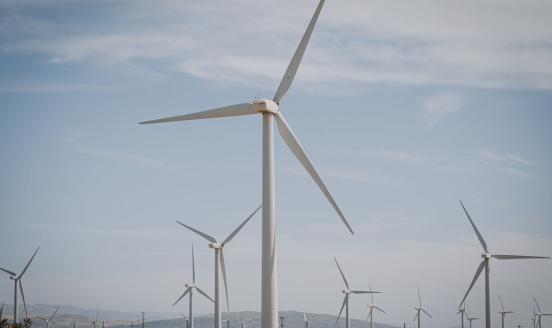Margrethe Vestager's speech at Bruegel's event "European competition policy and the energy transition"
This even took place on 12th October 2015 and featured a discussion about the role of European competition policy in the energy market, and especially
Good morning Ladies and Gentlemen:
I am grateful being invited to talk about how competition policy can support the transition towards Europe’s decarbonised economy.
Enforcing EU competition law has a clear remit. We make sure that business practices and government subsidies do not tilt the playing field in Europe’s Single Market.
Any company with operations in the EU can turn to us if they suspect rivals don’t play by the rules or are themselves engaged in anti-competitive behaviour and want to come clean.
Our action is based on the facts we find in each case and on the law. Factors such as the size of the companies involved, the industries they’re in, or their nationalities are immaterial.
Every competition decision taken by the Commission affirms that we are a Union of law – and in Europe the law applies to all without distinction.
But, I today will argue that an even-handed application of EU competition law doesfacilitate the transition towards a decarbonised economy, which is one of the Juncker Commission’s top goals.
In the transition to a green economy, our focus is to ensure that markets operate properly and that government support – including support to facilitate the drive towards renewable sources – does not create imbalances.
We are naturally working on this in relation to the energy sector, but we are also looking beyond energy to other green markets, such as recycling.
Energy
First let me tell you that our discussion today is also quite timely. The UN Climate Change Conference in Paris begins at the end of next month.
It is an opportunity we cannot miss to start giving concrete answers to one of the most crucial challenges of our time. We missed it in Copenhagen in 2009. I am optimistic that we can finally correct that mistake.
Europe is in the lead. The EU is pressing for a global, fair, and legally binding international treaty that can prevent global warming from reaching dangerous levels.
The last negotiations before the Paris conference take place in Bonn next week. The EU delegation has a clear mandate from EU ministers to commit to a binding target reducing emissions by 40% in 2030 compared to 1990.
Of course, the EU cannot change global climate alone but we can lead by example. What to do? Let’s look at some figures.
Some 40% of our carbon emissions come from industrial activities and transport and almost 60% from the fuels we burn to generate electricity and heat[1]. Clearly, the first order of business is tackling the energy challenge.
To do this, the European Commission has put forward a far-reaching and comprehensive energy strategy.
We propose measures to make energy supply more secure; integrate national energy markets; cut the demand for energy; decarbonise the energy mix; and invest more on research and innovation.
A strategy of this ambition and magnitude can only be a success if it engages many departments of the European Commission and if we manage to mobilise EU countries to work in the same direction.
Renewables are clearly the energy sources of the future.
My own portfolio as Commissioner for competition is directly relevant to making sure that energy from renewable sources is brought to the market in a competitive manner and that nothing hinders the development of an internal energy market.
Moving subsidies for renewables to market conditions
Let us see what Europe can do to promote a low-carbon basket of energy sources and how competition policy can help.
EU countries can decide on their energy mix in full autonomy. Over the past few years, many governments have been supporting renewables and we are making good progress.
Electricity from renewable sources as a share of the total EU electricity mix has grown from 14% in 2004 to over a quarter in 2013.
Renewables have also become cheaper. In the last five years, the average costs of onshore wind worldwide fell by 30% and the costs of solar by two-thirds. And prices are expected to decline further.
As a result, governments will have a better deal but, given the renewables boom, overall spending can increase and create a burden on public budgets.
As Commissioner for Competition, my task is to make sure that these subsidies are well-designed, keep markets level, and address genuine market failures. Because, as the technologies mature and become cheaper, the case for government support is weaker.
In the past, support schemes pursued only one goal: maximising capacity for producing electricity from renewable sources. Typically a single body would buy all the electricity generated in this way. But this was keeping renewables sheltered from market forces.
What we do now, instead, is promote the integration of renewable sources into the market to avoid creating distortions. We have three ways to reach this goal.
First, we encourage generators using renewable sources to do business like any other player. Starting in 2016, they will have to sell their electricity on the market. In addition, any support they get may only come as a premium on top of market price.
A second way is ensuring that government support is cost-effective and financially sustainable. To this end, from 2017 EU countries will have to grant operating aid through bidding processes.
Instead of letting public administrations set prices, each company would make its bid on the basis of the project’s and their own costs.
Finally, we need to get serious about a genuine European electricity market. We encourage EU countries to cooperate with each other and take into account the demand for electricity from across national boundaries.
Our policy drive is producing the first results.
In Germany a recent tender to install 400 MW of solar plants received 4 to 5 times as many bids as volume was auctioned. And the reference price for the winning bids was well below the administratively-set price.
Similarly, in the UK, different technologies with a similar degree of maturity have been put into competition with each other for aid, achieving a cost reduction of approximately 20% compared to the premium cap set by public authorities.
Capacity mechanisms
With more renewables, we would pollute less and rely less on imports. However, wind, solar and other renewable sources present a problem of their own to grid managers; they do not produce consistent levels of power.
To tackle this challenge, we need to tear down the technical and regulatory barriers that keep Europe’s energy markets fragmented. If we had a single, Europe-wide market for electricity, wind turbines in the North Sea could offset a cloudy day over the solar plant in Sicily.
To address the issue of intermittent renewables and ensure security of supply it may also be necessary to keep enough conventional plants ready as backup.
Heavy-duty gas turbines are among the best technologies here, because they are environmentally friendly and can be switched on quickly. It’s mostly gas-fired plants that can step into the breach and make sure the lights don’t go out.
Let me open an aside here. Gas turbines have been a core issue in our review of the acquisition of France’s Alstom by General Electric of the US.
Our concern was that the company that would emerge from the merger would have little or no interest in Alstom’s technology for gas turbines.
We eventually cleared the deal, but only after the companies pledged to sell part of Alstom’s heavy-duty gas turbines to Ansaldo, an Italian firm.
So, an important technology for Europe’s energy needs was in danger and we managed to rescue it in our review of the proposed deal.
In general, though, gas plants are expensive and investors can recover their costs only when they need to be used for backup. This makes for a difficult investment climate.
As a result, fewer conventional generation plants are being built and fewer still are planned. This raises the concern whether there will be enough capacity to cover demand.
European countries have taken preventive measures. One EU country in two has a capacity mechanism in place – or is planning to introduce one.
These are support schemes to guarantee that conventional plants stay open and generate electricity when demand peaks.
These schemes are a motley crew; there’s a wide variety of them and sometimes they are poorly coordinated.
This is why we launched a fact finding exercise – we call it a ‘sector inquiry’ – in eleven EU countries to see how these capacity mechanisms are designed and run. We will publish the first results early next year.
We need to make sure that these measures do not end up distorting the markets and are not used to re-introduce subsidies for conventional fuels from the back door.
Rather than building new plants – or extending the life of older, polluting ones – why not make prices more reactive to costs so that users can cut consumption? Why not invest in energy storage or new connections between grids?
If, at the end of the day, capacity mechanisms are still the best alternative in the short term, then they should be tendered out in an open and transparent way.
Power exchanges
To adapt to the future of energy in Europe we also need electricity markets that work better. Power exchanges, which are already a reality in most EU countries, can fit the bill.
Power exchanges are not the only way of selling electricity, but they are excellent platforms to bring power from renewables directly to the market.
They can also facilitate cross-border trading in electricity and thus help bring the integration of Europe’s electricity markets a step closer.
Competition policy must make sure that these exchanges operate on an open and competitive basis. It would be a paradox if they – of all players– were to erect artificial barriers in the internal market for electricity.
As it turns out, we’ve had to intervene in a few cases. Last year we prohibited discriminatory practices by OPCOM – the Romanian power exchange – and a market sharing agreement between rival exchanges Nord Pool Spot and EPEX Spot.
At present, we are investigating Bulgaria’s incumbent energy group, and I hope that setting up a liquid and viable power exchange will allay our concerns.
Beyond energy
Looking beyond electricity, I believe that well-functioning markets are important for the green agenda in general.
The European Commission is currently preparing a new strategy to promote the circular economy, which takes an integrated approach to the whole lifecycle of materials and products that go into consumption.
The key is to use market forces to promote the transition to a greener economy. To meet the needs of our fellow European citizens – including building an economy that doesn’t give our planet a fever.
Let me tell you about an investigation we have in Austria to make this point.
Austrian law obliges all producers of packaged goods to collect, sort and recycle their packaging once it becomes waste. To meet this obligation, producers got together and created ARA.
However, the Commission’s environmental department found that, in the past, ARA had the highest prices for waste-management services in Europe.
Now, ARA has a de facto monopoly of waste-management services in Austria and its infrastructure cannot be duplicated. This includes a collection-bag system used by 1.4 million households.
This is the situation on the ground.
The European Commission has an ongoing antitrust procedure against ARA. The allegation is that ARA eliminated competition from the waste-management market by refusing access to its household waste-collection infrastructure. We call that ‘foreclosure’.
In the meantime, things have changed. Since early 2015 a new Austrian waste law requires a shared use of the collection infrastructure. Our investigation, combined with the new law, should help to make sure that prices for collecting waste will go down.
Competition ensures that waste management services are affordable for consumers and that innovation is not stifled.
With the recent reform, the Commission has simplified and extended the possibilities for EU countries to grant aid for waste management, as well as for remediation of contaminated sites, energy efficiency projects, and for carbon capture and storage.
The objective is to give EU countries a flexible framework that can help them fight climate change. But the rules must be applied well.
At present we are dealing with a number of cases concerning critical areas – including waste management – where the need for public support must be carefully balanced against the need to protect markets that are already open to competition.
***
As you can see, keeping the playing field level can be a good thing for the green agenda.
Building the green economy of the future requires innovation and fresh ideas. It also requires companies that can bring to the market the green products, services and solutions we need to save the planet.
There is no doubt in my mind that keeping markets open and contestable contribute to create the best conditions for this to happen. We should trust the power of vibrant and well-regulated markets.
This applies to waste-management services, renewable sources of energy, and many other sectors in our economy.
To reach the ambitious targets that the EU will bring to the Paris conference – to show to the world that we really mean what we say in Europe – we will have to mobilise a whole array of public policies in Brussels and in Europe’s capitals.
At the end of my presentation today, I hope you will agree that competition policy is clearly one of them.
Thank you.



